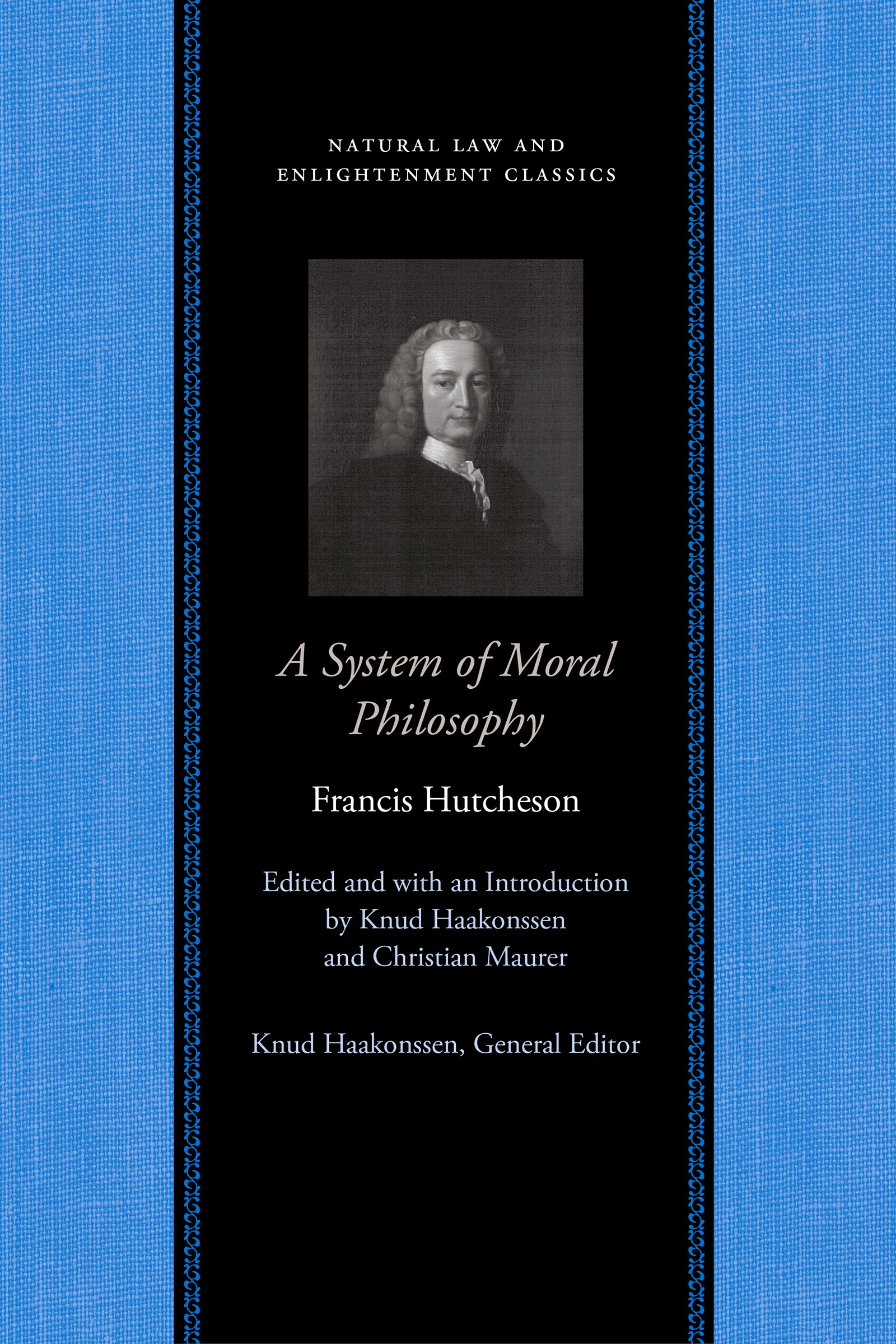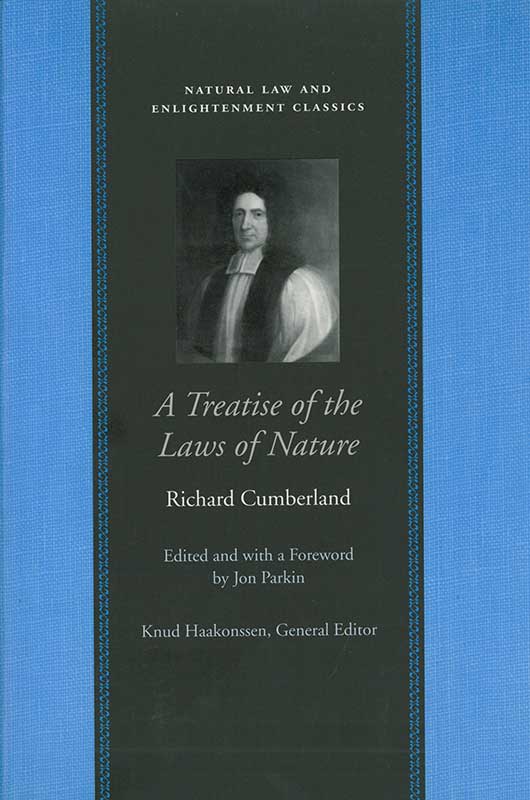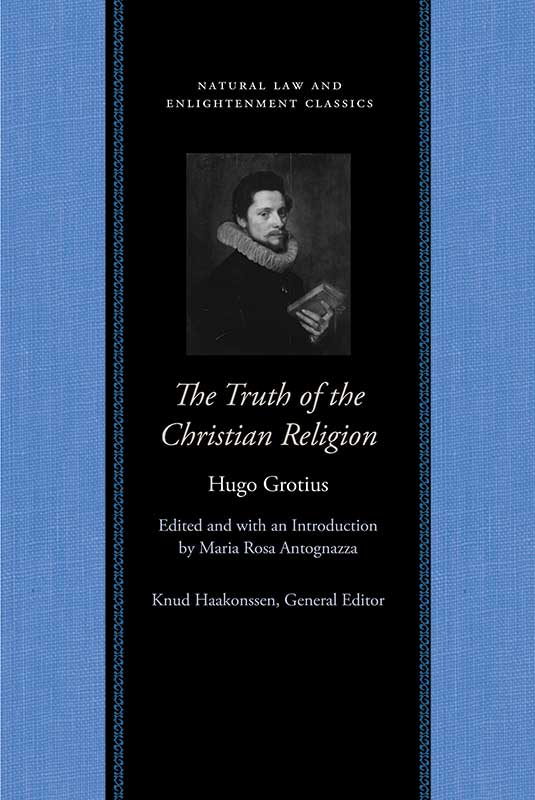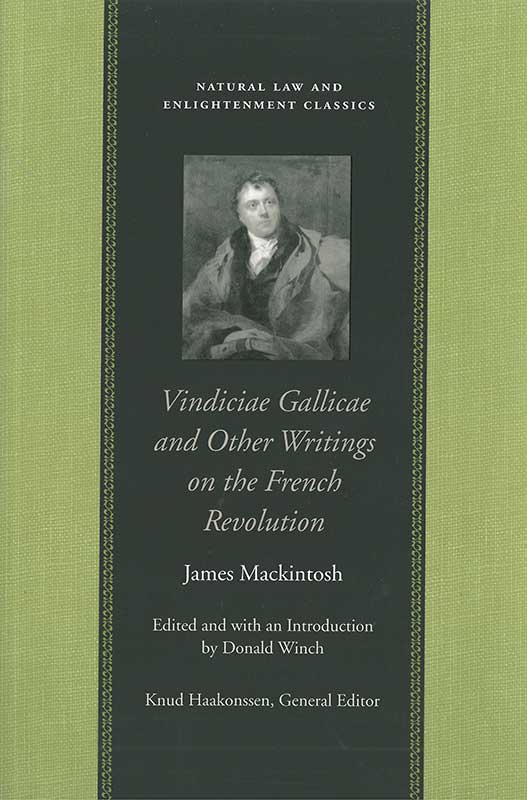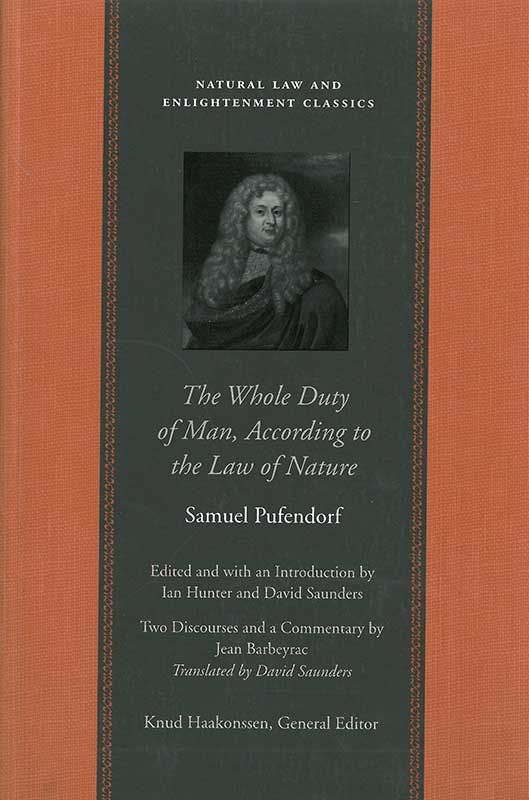Natural Law and Enlightenment Classics
-
A System of Moral Philosophy
by Francis Hutcheson
/ Learn MoreA System of Moral Philosophy is the major synthesis of the moral, social, and political thought of Francis Hutcheson (1694–1746). He is one of the most influential figures of the Scottish Enlightenment, and this work is his concerted effort to make his theory of humanity’s innate moral sense compatible with and the foundation of natural jurisprudence that encompasses a system…
-
A Treatise of the Laws of Nature
by Richard Cumberland
/ Learn MoreA Treatise of the Laws of Nature, originally titled De Legibus Naturae, first appeared in 1672 as a theoretical response to a range of issues that came together during the late 1660s. It conveyed a conviction that science might offer a more effective means of demonstrating both the contents and the obligatory force of the law of nature. Jon Parkin…
-
The Truth of the Christian Religion with Jean Le Clerc’s Notes and Additions
by Hugo Grotius
/ Learn MoreGrotius’s The Truth of the Christian Religion was first published in Leiden in 1627 in Latin. Written in plain and direct language for his countrymen, this short work aimed to show those who would encounter pagans, Muslims, and Jews that the Christian religion was the true revealed religion. In addition to “fortifying” the beliefs of his fellow Christians, the treatise…
-
Two Books of the Elements of Universal Jurisprudence
by Samuel Pufendorf
/ Learn MoreTwo Books of the Elements of Universal Jurisprudence was Pufendorf’s first work, published in 1660. Its appearance effectively inaugurated the modern natural-law movement in the German-speaking world, establishing Pufendorf as a key figure and laying the foundations for his later major works. Samuel Pufendorf (1632–1694) taught natural law and was court historian in both Germany and Sweden. Thomas Behme is…
-
Vindiciae Gallicae and Other Writings on the French Revolution
by James Mackintosh
/ Learn MoreVindiciae Gallicae was James Mackintosh’s first major publication, a contribution to the debate begun by Edmund Burke’s Reflections on the Revolution in France. The success of Mackintosh’s defense of the French Revolution propelled him into the heart of London Whig circles. Following the September 1792 massacres Mackintosh, along with other moderate Whigs, revised his opinions and moved closer to Burke’s…
-
The Whole Duty of Man, According to the Law of Nature
by Samuel Pufendorf
/ Learn MoreSamuel Pufendorf’s The Whole Duty of Man, According to the Law of Nature suggested a purely conventional basis for natural law. Rejecting scholasticism’s metaphysical theories, Pufendorf found the source of natural law in humanity’s need to cultivate sociability. Samuel Pufendorf (1632–1694) taught natural law and was court historian in both Germany and Sweden. Ian Hunter is Australian Professorial Fellow in…
Promotions
Stayed tuned for future promotions!

